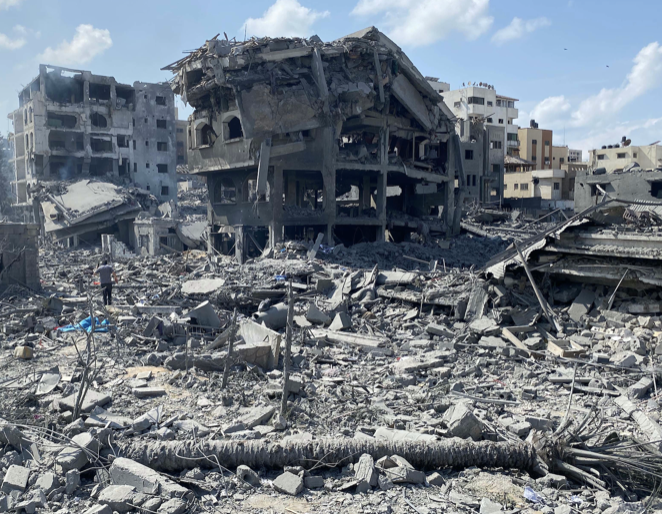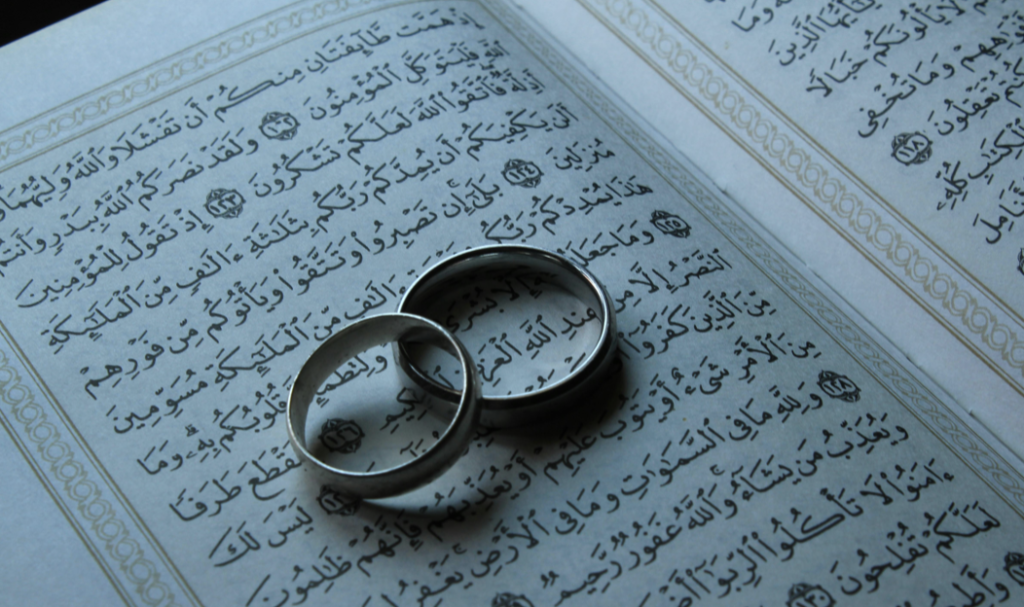Is Love Truly Blind in Arab Society?

By: Nissrine Bedda / Arab America Contributing Writer
Netflix recently debuted a new dating series, Love is Blind: Habibi, which quickly went viral on social media platforms like TikTok and Instagram in early October. For those unfamiliar with the concept, the show revolves around a group of single men and women searching for true love. Participants engage in a unique blind experiment where they communicate with each other from separate pods, divided by a wall that prevents them from seeing or touching one another. After multiple dates, one person must ultimately propose with the pivotal question: “Will you marry me?” If accepted, the couple becomes officially engaged. As viewers, the central question remains: Is love truly blind?
Is Love Truly Blind?
The franchise spans countries such as Argentina, Brazil, Mexico, Australia, and the United States. While the idea of entering an experiment to meet a potential spouse without physical intimacy might seem unusual or surprising in Western cultures, it could align perfectly with the values and traditions cherished in Arab societies, making the experience truly harmonious. It’s interesting to see just how Western perspectives view the new series, taking place in Dubai, as one person may be rooting for one couple, but unable to comprehend the social constructs involved in Arab society that may be seen as controversial, depending on personal views.
In the series, you are immediately introduced to 20 contestants ranging from Arab nations like Syria, Morocco, Tunisia, Palestine, Saudi Arabia, Kuwait, and Lebanon. Although we share a common Arab identity and a deep connection with our people, it’s impossible to ignore the clash of perspectives that emerge among different nations within these pods.
One Couple and One Wall
Overall, understanding the complexity and depth of these conversations truly ignite a profound love between these couples who are, again, divided by one wall. I am convinced that this experiment aligns seamlessly with the deeply rooted traditions of Arab culture, where the institution of marriage is regarded with profound admiration and is intricately intertwined with our collective identity. It reflects not only the enduring love for our rich and multifaceted heritage but also the intricate dynamics of familial bonds, which play a pivotal role in shaping our social structure. Moreover, it underscores the vital message we strive to pass down to future generations—one of honoring and preserving the values, customs, and cultural legacy that define who we are as a people.
While some Westerners, including the Arab diaspora, might view this as “over the top” or excessive, could it be that our Western mindset, often more focused on the physical, limits the depth of emotional connection we seek when searching for future partners?
Tribalism is Ingrained in Arab Society
For those unfamiliar with the deep sense of tribalism ingrained in our culture, it might feel like a kind of pressure for one to find the ultimate match. However, as Arabs, we truly stick together, holding tightly to our roots, never forgetting where we come from—an enduring bond that shapes who we are. The pressures of finding the right partner also includes considering the question: “Will my spouse compromise or understand my customs I grew up on?”, even if both partners are of Arab background. For example, a Moroccan and a Lebanese couple. Both are Arab, but not quite the same. This is the mix up we often face from outside perspectives. It’s the question of “well aren’t you both Arab at the end of the day?”
While we may not often think about it, the level of tribalism that is ingrained in our identity remains quite prevalent in Arab society today, whether we choose to accept it or not. And no!, it’s not barbaric, as some may claim it to be.

We can think back to families migrating in groups based on the town they’re from back home. One family may be given the opportunity to prosper in a new place, where they also take on the responsibility of guiding and encouraging their community to follow a similar path. Arab countries have faced political conflict for much of their history. In some cases, families may choose to have more children as a way to ensure survival and maintain their legacy. Preserving our rich cultural identity is vital to ensure it remains alive and remembered.
“You’re Marrying the Family as Well”
In a new relationship, the deeper meaning comes from the mixing of two families. You may have heard of the phrase, “when you marry someone, you’re marrying their family as well“, and it indeed is true in our heritage!
Take a Katb Kitab, for instance. For those who may not know, a Katb Kitab is when both The male heads of both families gathered together at the center to review and sign the marriage contract, ending a multistep pre-engagement process by which is traditionally undertaken both families. The reunion also includes both male figures reading the Fatiha (the opening verse in the Quran), and creates a space for both families to unite and honor the union of two halves joining one another in the hopes of marriage.

This honorary ceremony serves as a cornerstone of our faith while also embracing cultural traditions. It provides an opportunity for both families to come together, fostering understanding and meaningful conversations to determine if they can build a harmonious relationship for the future.
Not all Arabs Are the Same
No, not all Arabs are the same! We must reflect on the historical events that have shaped the way we define ourselves and how we operate. The Maghreb region has diverse customs encompassed by imperial customs due to French and Spanish colonization which may come across as a bit more Westernized than other Arab regions.
The nightlife scene in the Maghreb, for example, may reflect a more relaxed attitude towards habits like alcohol, smoking, or dating outside the culture, partly due to its proximity to Europe and the influence of European tourism. Similarly, while Lebanon has strong French cultural influences, it is also shaped by the more traditional cultural practices of its neighboring regions. This diversity highlights how different preferences coexist—some couples might prefer a casual coffee outing, while others might enjoy a more vibrant nightlife. Both are equally valid and should be embraced, reflecting the interconnected and evolving world we live in today.
Multiculturalism is Expanding in Arab Society
In the series, we see how these differences can come to life. While they may spark a list of questions, it’s enlightening to see the level of compromise this generation of Arabs are able to uphold and welcome in new Arab traditions.
The notion of marrying within one’s culture still persists in some parts of Arab society. However, witnessing the hybridity and compromises made by these contestants in response to the question, “Is love truly blind?” is both heartwarming and potentially inspiring. It may offer a sense of hope for current and future generations who are open to dating outside their cultural boundaries.
Today, we see the beauty of Brazilian-Palestinian, Swedish-Moroccan, and Egyptian-Lebanese couples building lives together, creating a future full of love and shared culture. As new generations of multicultural Arab children grow, it’s essential to nurture spaces where they can embrace and connect with both of their rich heritages. Let’s celebrate and support their journeys of self-discovery, helping them to cherish the unique identities that make them who they are!
Check out our blog!








